Kaunas and Vicinity
We stopped in the city of Kaunas
for lunch but I had another goal Joe and I left our group and headed toward
the church steeple in the distance |
|
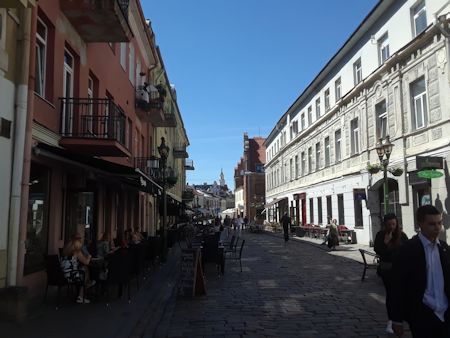 |
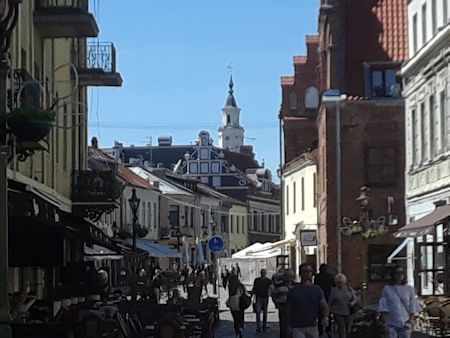 |
This is the Church of the Holy
Trinity and Monastery where Father Bronius Paukstys (My family name) saved hundreds of Jews during WWII |
Detailed information about Father Paukstys
and my research are at the end of this page |
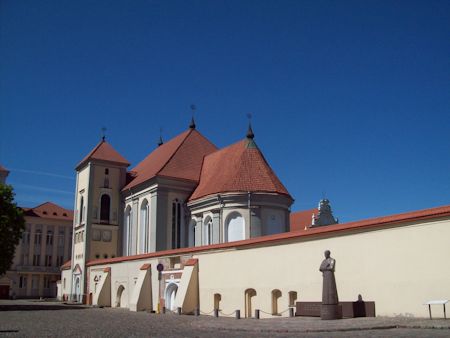 |
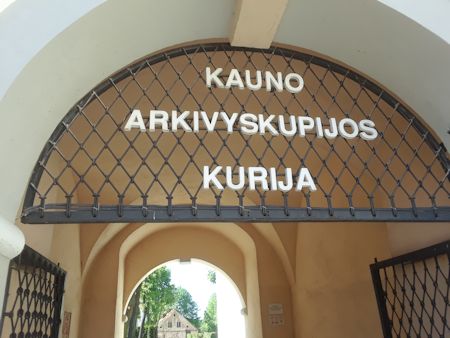 |
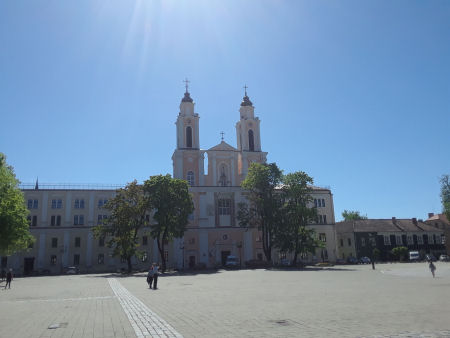 |
There are 4 churches on this
main square including the Cathedral below However, the church with the single white tower that was our destination is no longer used for worship It is a tourist information center where the clerk provided verification that I indeed had found the correct location |
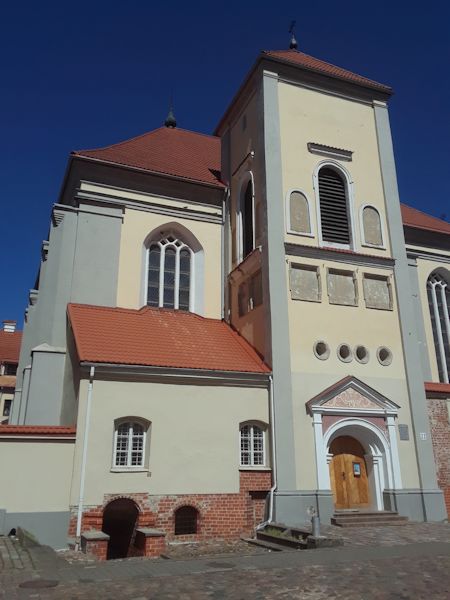 |
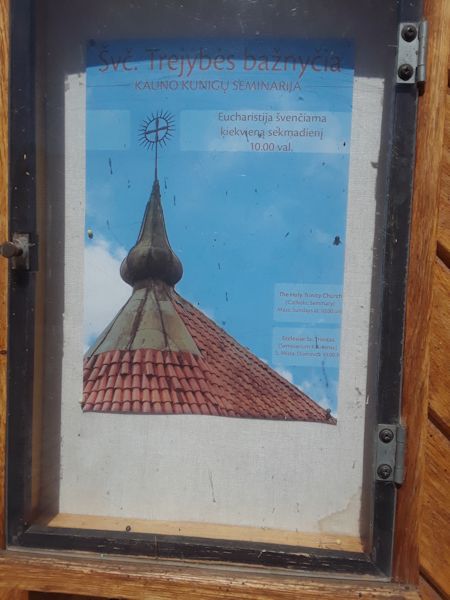 |
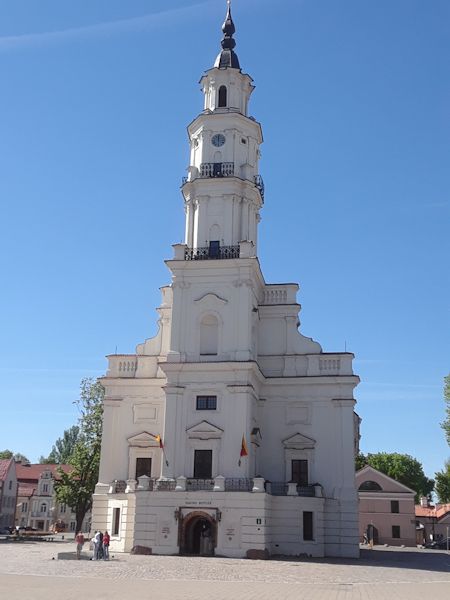 |
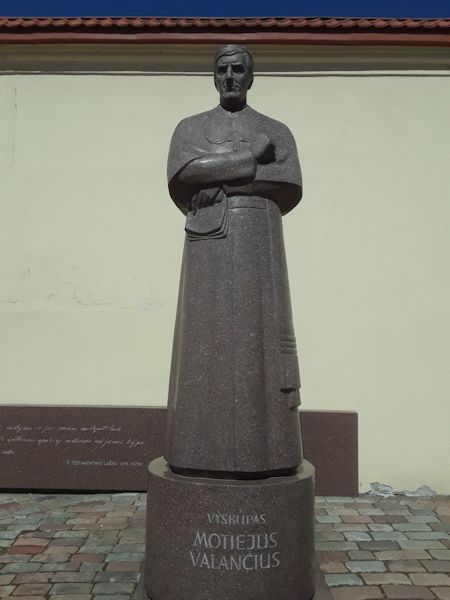 |
This is the Neman River.
You can see it also on the map at the right |
My family village Nova is located to the southwest Currently only 65 people live there. Young people leave to find work in the cities |
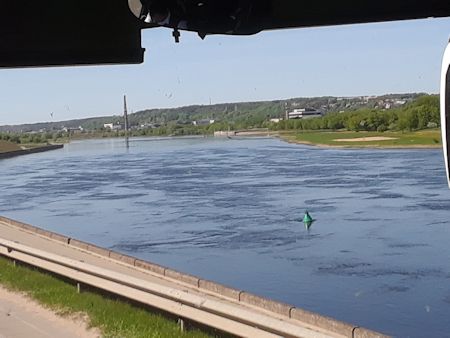 |
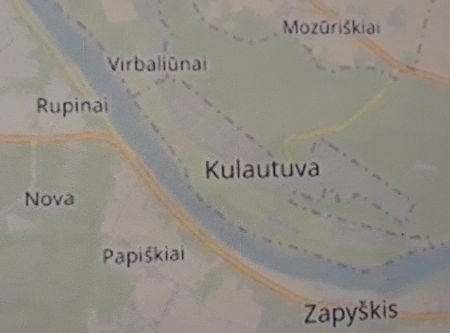 |
While Father Paukstys is rightly
honored for saving hundreds of Jews, this monument outside the city marks the enormity of the attrocities committed by the Nazis |
|
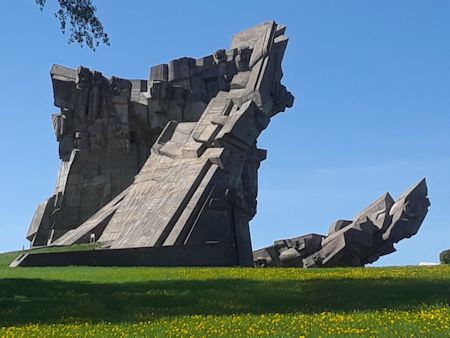 |
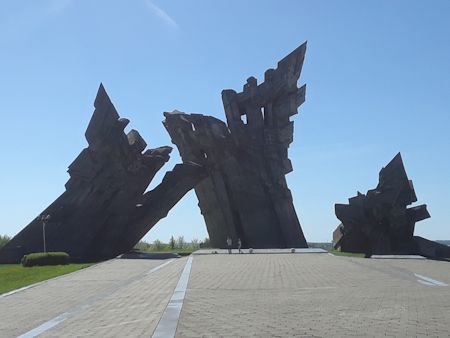 |
50,000 people were murdered
here and buried in mass graves The wall is where many were executed by firing squad One plaque below states that 30,000 were killed. Since then other mass graves were discovered |
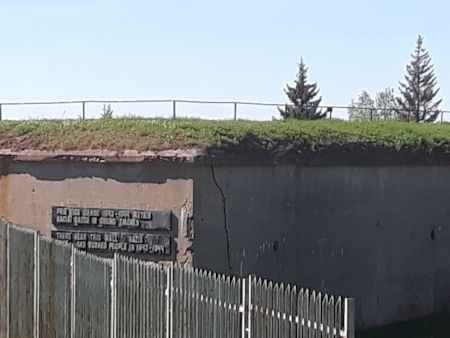 |
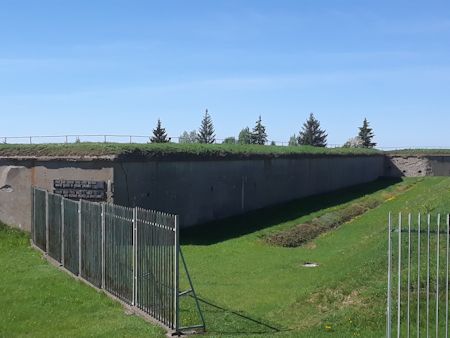 |
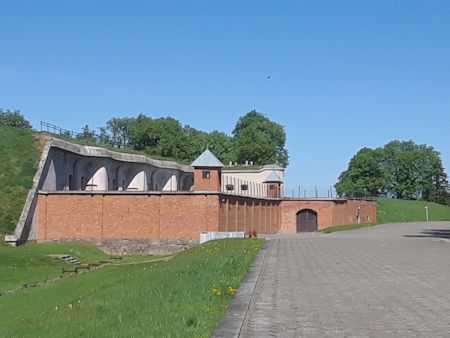 |
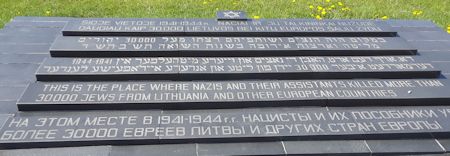 |
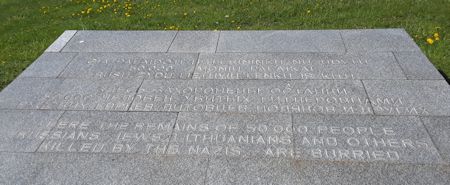 |
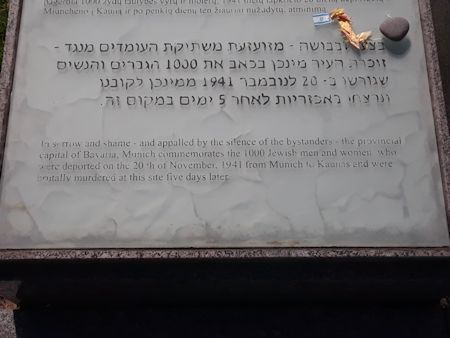 |
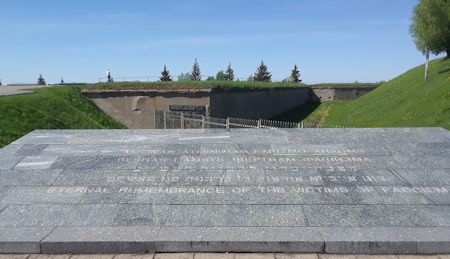 |
The Nazi's were not alone in their campaign
of terror The Soviets had their own brutal methods. One million Lithuanians were deported to gulags in Siberia That included men, women and children Below is a replica of the boxcar into which 65 people were crowded for the 10,000 km trip Our guide was a 90 year old survivor who described the horror of the trip and her 17 years in a hut like the reconstruction here It sheltered as many people as their captors could squeeze in there She was 14 years old when she, her brother and parents were taken. They worked for 12 hours a day Her parents died there. |
|
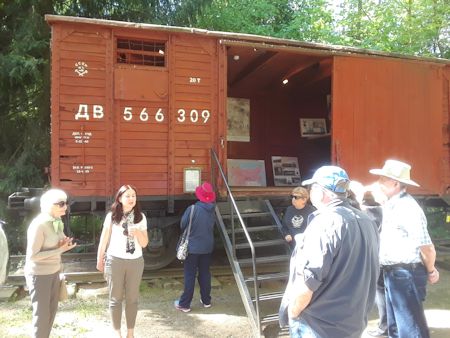 |
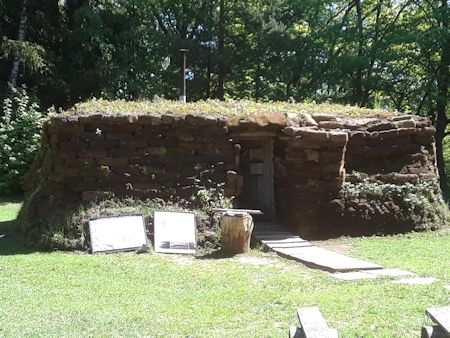 |
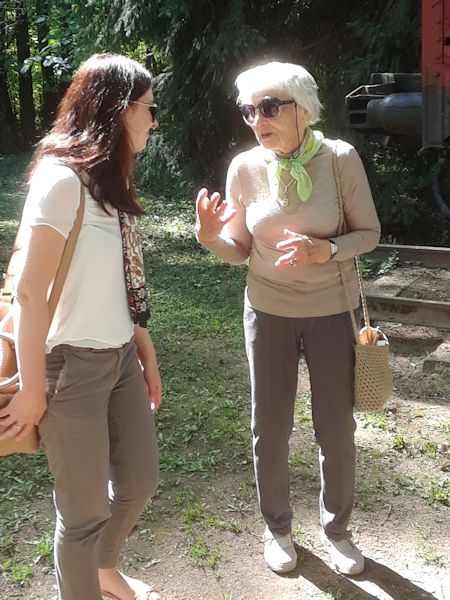 |
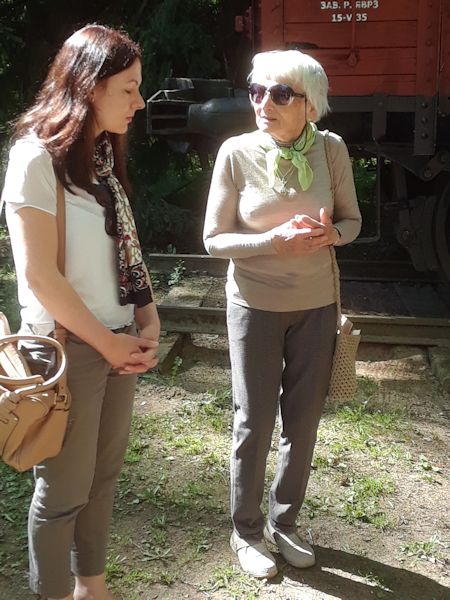 |
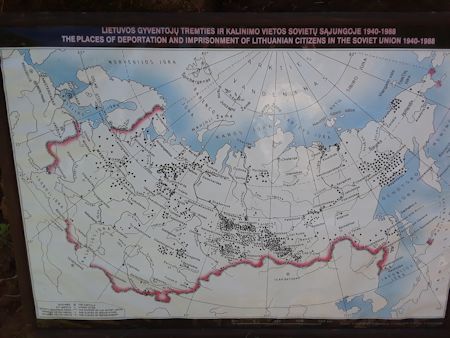 |
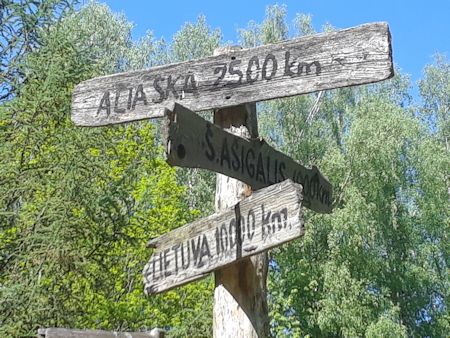 |
This is the memorial to those who were deported |
|
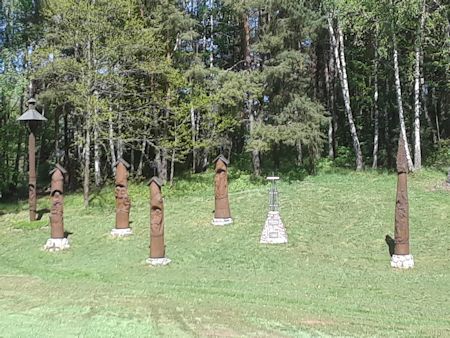 |
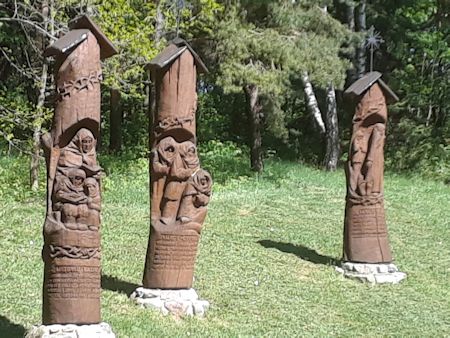 |
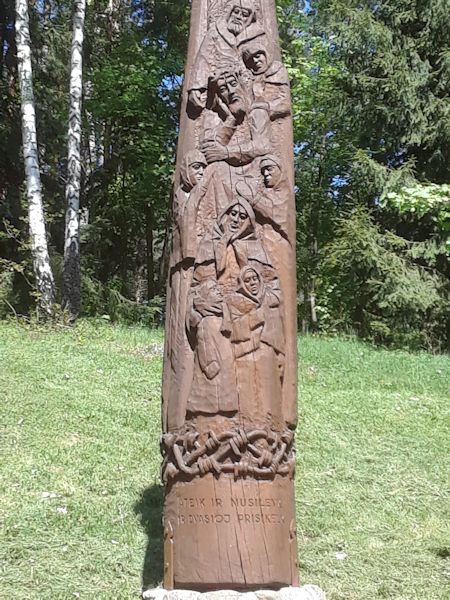 |
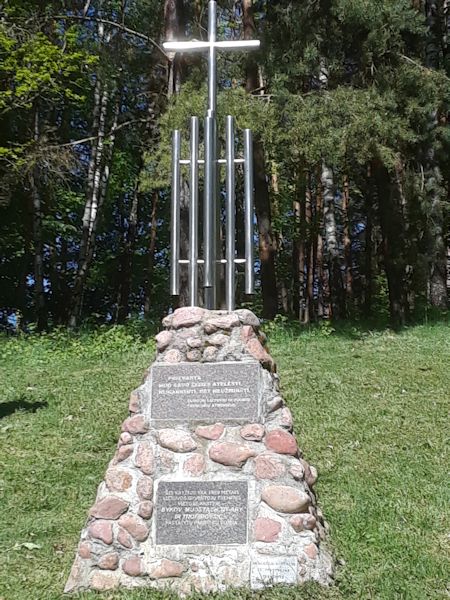 |
My maiden name Paukstis (Paukstys)
is unusual both in the USA and in Lithuania. So in 1977 when a Lithuanian priest Fr Bronius Paukstys with my last name was honored by Yad Vashem I began to research the tragedy of WWII in my family's country of origin. Back then I corresponded by letter with officials in Israel and I was told that all records were in Hebrew. Information is now much easier to come by. Fr Paukstys was born 5 miles away from my family's village. I have no idea if this hero is a relative or not, but I shared his story with my children and grandchilren as an example of how people should behave in the face of evil. The following information is from http://www.yadvashem.org/righteous/stories/paukstys.html In 1977 Yad Vashem awarded the title of Righteous Among the Nations to Father Bronius Paukstys. His brother Juozas Paukstys, a professor of agriculture who helped his brother in his rescue activity, was also recognized as Righteous Among the Nations. |
|
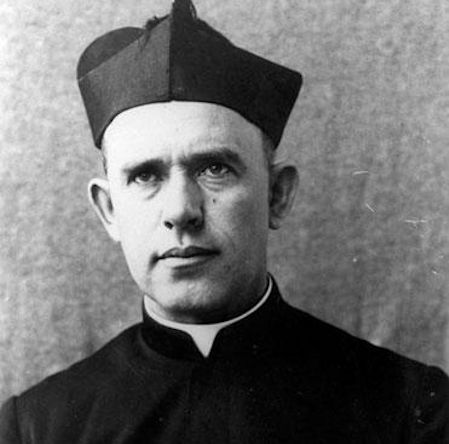 |
Born in 1897 to a farming family with eleven children, Father
Bronius Paukstys entered the priesthood and joined the Salesian
order, living the life of a monk.
|
